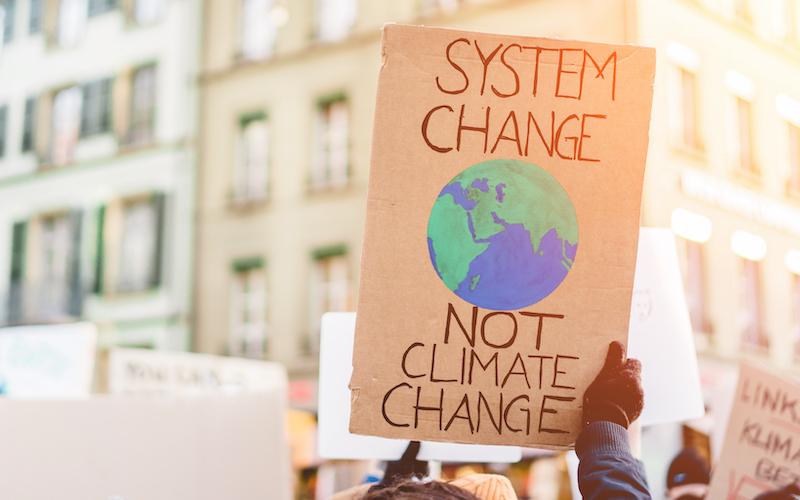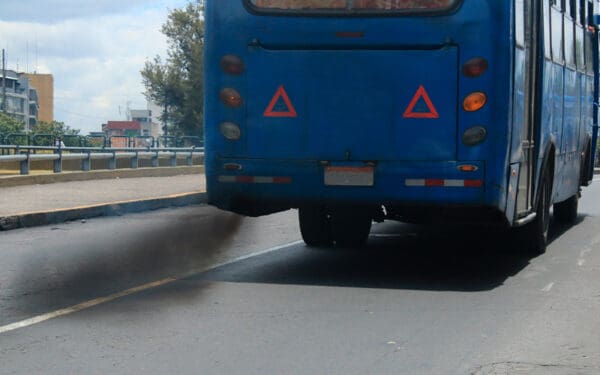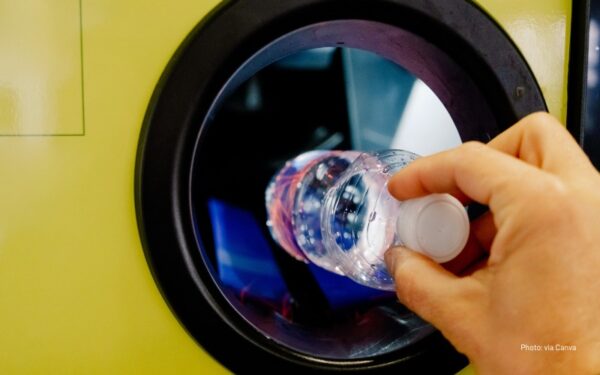
A group of youth demonstrators advocating for climate action. Photo: Shutterstock.
Every day, the news gets harder to read. As I begrudgingly scroll through the myriad of apps on my phone, I’m bombarded with headlines that make the reality of our climate crisis even more overwhelming. New scientific reports warn us that some of climate change’s devastating impacts are now unavoidable. We’re experiencing hotter summers than ever before, and our tides continue to creep closer to our homes.
I know it’s important to stay up to date on the ever-worsening climate impacts our communities contend with. But consuming stories on how glum our future looks can make me feel exhausted and anxious, despite climate action literally being my job (working at an environmental advocacy organization). Even I’m sometimes left feeling like it’s hard to make a difference.
And it turns out, I’m not alone in that feeling – but there’s also plenty of hope to be found.
What Is “Climate Anxiety”?
The term “climate anxiety” comes from an understanding that people grieve the degradation and loss of the environment around us. Environmental researcher and writer Panu Pihkala explains that climate grief, which encompasses climate anxiety, can affect us in many ways. We mourn when we suffer from extreme weather or a natural disaster. We lament the loss of homes, lives, and livelihoods. We worry for the plants, animals, and natural spaces we love. We fear for the safety of our communities and families.
And this, of course, makes sense. Americans are more alarmed and concerned about climate change than ever before. The phenomenon of climate change clearly impacts our world and our minds – so much so that the American Psychological Association released a report detailing the mental health impacts of the crisis. These effects include stress, depression, strain on social and community relationships, fatalism, fear, helplessness, and so much more.
But there is room for hope.
We can fight climate change.
That’s right – you read correctly. We can fight climate change, and we have been fighting climate change. And we’re more powerful when we do so together. We’ve shut down coal in New England. We’ve stopped major gas pipelines from being built. We helped move forward the first offshore wind farms in the United States. We successfully pushed forward climate laws in almost every New England state – all of which would never have happened without your support.
In fact, the power of our collective action is something big fossil fuel companies don’t want us to recognize. BP even launched a massive public relations campaign to popularize the concept of a “personal carbon footprint.”
Their goal was to put the onus of climate change onto the individual consumer and not the polluting company. The perpetrators of the climate crisis benefit when we feel helpless, alone, and hopeless.
As climate anxiety gets more taxing, remember that solutions exist – and they are working. Strategies like expanding clean energy or restoring and protecting natural habitats all address larger systems responsible for climate change. They help us reduce our polluting emissions, remove them from the atmosphere, and withstand current climate impacts. Even better, we can find solidarity and validation in other people who also want to make a difference – and there are plenty of us out there.
So here are three ways that you can find hope when you feel like there isn’t any left.
1. Talk About It
A great first step is to open the floor to conversation. These conversations can be right at home, with friends or family, or in your communities at local cafés and libraries. Talking about climate change and our climate anxiety helps make complex emotions and scientific impacts more tangible. Pihkala explores how naming the emotions we contend with can help ground us in the face of our uncertain future.
What’s more, sharing our emotions and concerns with others can take an isolating experience and turn it into a communal one. After all, communicating our feelings, information, and solutions is one of the first steps towards igniting movements of change.
2. Get Involved
Think of three things you care about. Is it the health of your community? The wildlife around you? Clean air and clean water? Then, start to find ways to get involved in protecting those things. For example, focusing on cutting dirty fossil fuel use both personally and in your community can actually help safeguard many of the things we value, from the safety of the people we love to the health of the world around us.
When your climate anxiety feels heavy, start small and think about the easy things you can do. These individual actions don’t just reduce climate-damaging emissions, they also connect us to the larger climate action movement. Then, as you get more used to climate action, start to think about things you can do in your community.
Which brings us to our third step…
3. Demand Action
If we stop at switching lightbulbs or eating plant-based meals, then we let big fossil fuel companies win. Our real power comes from community-level action that addresses larger systems perpetuating the climate crisis. That means beating climate change requires our government to act, too. And not just the federal government; We can enact change at the local and state level as well.
Demand our elected officials address climate change – and address it now. Vote for candidates that take climate change seriously, sign climate petitions, contact your elected officials by calling or writing letters to support climate solutions. And yes, actively protest.
Almost all New England states have binding laws mandating cuts in climate-damaging emissions – and we need to make sure our governments reach those targets. We have the power to hold them accountable.
If you don’t know where to start, that’s understandable! Figuring out how you can help address a huge, complex issue is tough. If you sign up for our email list, we’ll send you periodic, targeted actions you can take to make a change. Thinking about climate change can be overwhelming and scary, but fighting it doesn’t have to be.
Key Takeaways On Climate Anxiety
Climate anxiety can affect anyone who cares about climate change and is scared about what the future looks like. These three steps probably won’t eradicate your anxiety completely. But we can certainly unearth hope by focusing on solutions and finding community. That hope is what brings us together to advocate for change.



